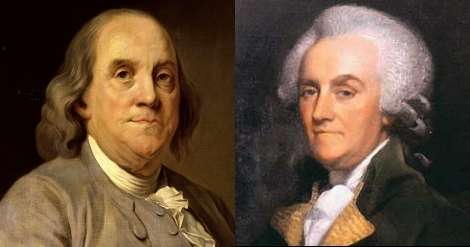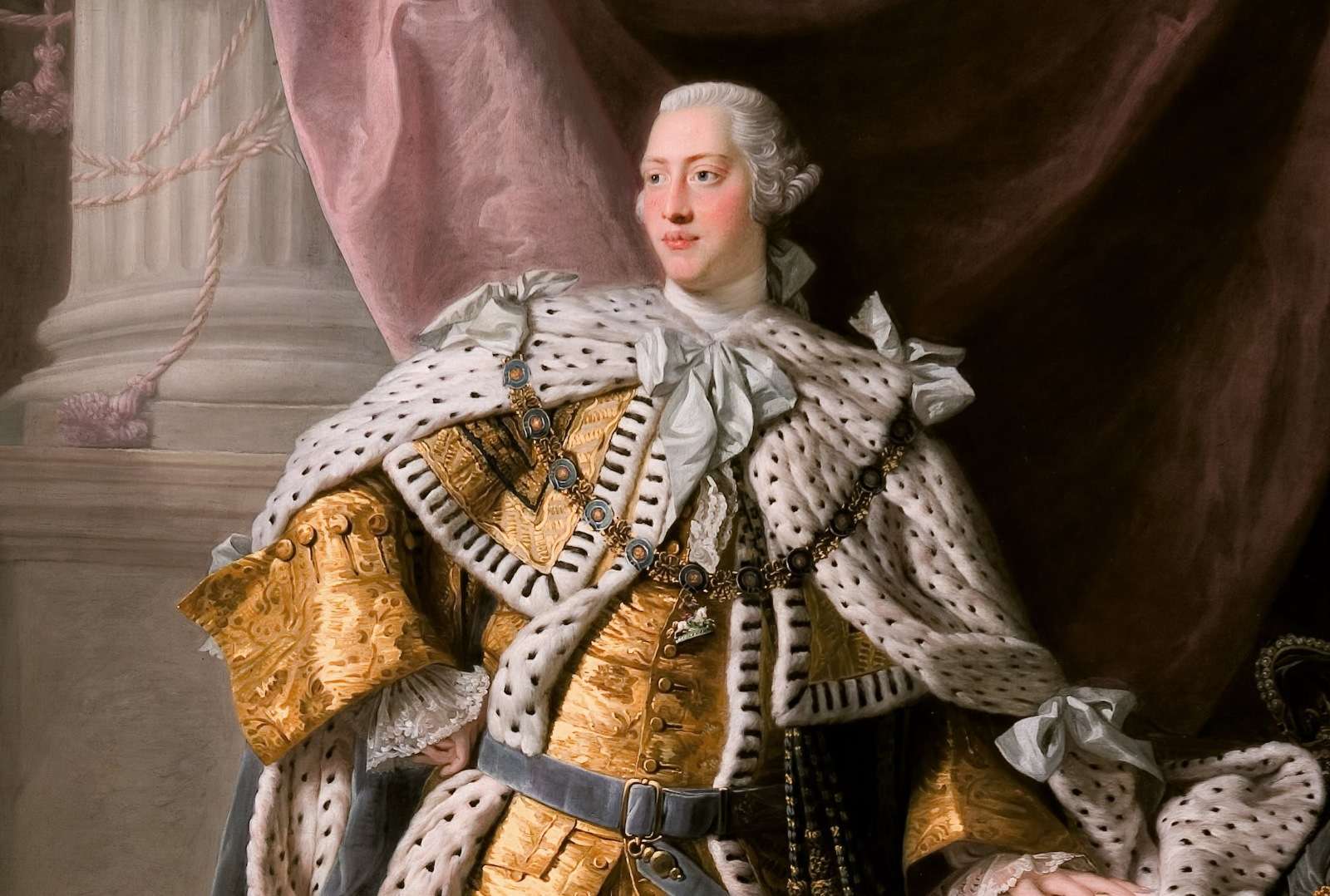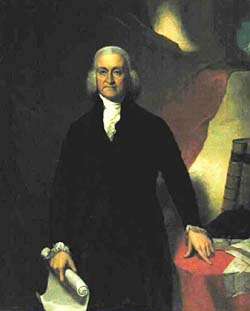The American Revolution created rifts in many families with both patriots and loyalists among their members, none more disruptive than the divide between William Franklin and his famous patriot father Benjamin.

Benjamin Franklin (Joseph Siffred Duplessis) and William Franklin (by Mather Brown)
Benjamin’s son William Franklin was most likely born around 1730 out of an illegitimate relationship that later became a common-law marriage. But Benjamin Franklin did not ignore his son. Though the boy was largely raised by his caustic mother, Deborah, Franklin nonetheless looked out for him.
The two were companions and friends, and Franklin helped his son obtain an education and his early jobs.
Franklin ensured that his son had a military position in the French and Indian Wars. The two worked together publishing Poor Richard’s Almanack. And Benjamin lobbied in London for William Franklin’s appointment to royal governor of New Jersey in 1762.
Gov. William Franklin
In the early days of the American Revolution, Franklin wanted even greater things for his son, then a leading political figure in America.
His father urged William Franklin to resign as governor and join the patriot cause. William refused, outlasting all other colonial governors well into 1775, because of his and his father’s good name.

George Washington, 1776
In August, Benjamin visited his son in New Jersey to give him the full picture of the war’s developments. The British were collecting an army of Hessians and the Americans were coalescing around George Washington.
Benjamin assured the young man the patriots would welcome him with open arms. He said William could get a generalship in Washington’s army because of his earlier military service and his prominence.
William Franklin stubbornly refused his father’s advice. He had twin arguments for his position. One, he remained loyal to the king; and two, he did not believe most Americans would support the Revolution.

King George III
William would lead one last quixotic attempt to lead the colonies in a reconciliation with the king. But the effort failed. His actions formally put him at odds with Benjamin, a reluctant but vigorous patriot leader.
William Franklin might have thought reconciliation between England and the colonies would give him greater political power in America. But as the war with Great Britain gained momentum, so did the fight between father and son.
Just Shoot Me
In June of 1776, rebels in New Jersey exiled Gov. William Franklin to Connecticut, where Gov. Jonathan Trumbull sided with the patriots.
The patriots placed him under guard at Wallingford and then Middletown. However, the stubborn governor-in-exile refused to submit to his captors. He continued gathering intelligence for loyalists and helping protect Connecticut Tories’ property by issuing them royal pardons.
In May of 1777, armed guards took William Franklin to Litchfield. They placed him in solitary confinement in the cell reserved for prisoners condemned to death. His filthy room contained a straw mat on the floor and nothing else – no bed, no seat, no toilet facility.

Jonathan Trumbull
In September, he wrote to Gov. Jonathan Trumbull: “I suffer so much in being thus buried alive, having no one to speak to day or night, and for the want of air and exercise, that I should deem it a favor to be immediately taken out and shot.”
William Franklin sent a plea to George Washington, asking to visit his ailing wife. Washington replied he could not countermand the Continental Congress, which had confined him. He did, however, ask the Congress to grant a furlough for Franklin so he might visit his wife in New York. Congress refused, and Franklin’s wife died while he was imprisoned.
Release
Finally, in December of 1777, the governor removed him from the Litchfield jail and allowed him to be imprisoned in a house at East Windsor. By now, the conditions of the jail had taken their toll. William Franklin had lost his teeth and hair and was desperately ill.
In 1778 he was exchanged for other prisoners and allowed to go to New York. He would soon travel to England.
Benjamin Franklin made no efforts after 1775 to assist his son in the predicament he chose. The two men would reconcile somewhat in 1784, but never became the close companions they had been earlier in life.
Benjamin Franklin would leave his son very little of his property and virtually excised him from his autobiography.
This story about William Franklin was updated in 2023.


8 comments
A little more editing needed here folks!
In the best of families
[…] may have lost business because of rumors he was a Loyalist. Three of his sons moved to Nova Scotia after the British left; three others continued the […]
[…] example, Franklin hated the British for burning down towns. His son William, royal governor of New Jersey, remained a Loyalist. Because of that, Ben Franklin didn’t have anything to do with him for the rest of his […]
[…] others believe Loyalists founded Hanton City during the American Revolution. The patriots exiled several Tories to […]
[…] on the “wrong side” of the Revolution, as the song puts it, having landed himself in jail while working with British and their loyalists — and it’s true that Franklin had a […]
[…] on the “wrong side” of the Revolution, as the song puts it, having landed himself in jail while working with British and their loyalists — and it’s true that Franklin had a […]
[…] on the “wrong side” of the Revolution, as the song puts it, having landed himself in jail while working with British and their loyalists — and it’s true that Franklin had a […]
Comments are closed.